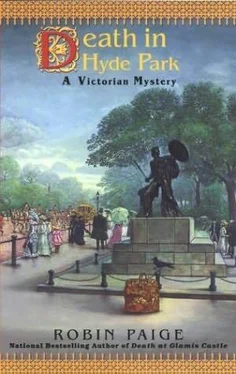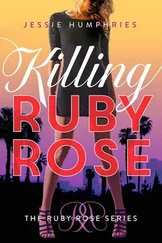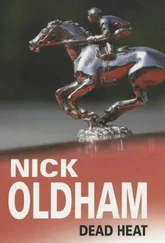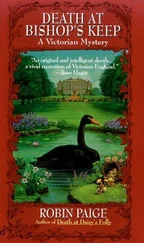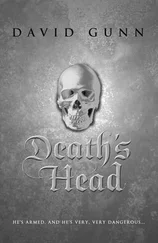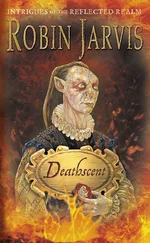Robin Paige - Death in Hyde Park
Здесь есть возможность читать онлайн «Robin Paige - Death in Hyde Park» весь текст электронной книги совершенно бесплатно (целиком полную версию без сокращений). В некоторых случаях можно слушать аудио, скачать через торрент в формате fb2 и присутствует краткое содержание. Жанр: Классический детектив, на английском языке. Описание произведения, (предисловие) а так же отзывы посетителей доступны на портале библиотеки ЛибКат.
- Название:Death in Hyde Park
- Автор:
- Жанр:
- Год:неизвестен
- ISBN:нет данных
- Рейтинг книги:5 / 5. Голосов: 1
-
Избранное:Добавить в избранное
- Отзывы:
-
Ваша оценка:
- 100
- 1
- 2
- 3
- 4
- 5
Death in Hyde Park: краткое содержание, описание и аннотация
Предлагаем к чтению аннотацию, описание, краткое содержание или предисловие (зависит от того, что написал сам автор книги «Death in Hyde Park»). Если вы не нашли необходимую информацию о книге — напишите в комментариях, мы постараемся отыскать её.
Death in Hyde Park — читать онлайн бесплатно полную книгу (весь текст) целиком
Ниже представлен текст книги, разбитый по страницам. Система сохранения места последней прочитанной страницы, позволяет с удобством читать онлайн бесплатно книгу «Death in Hyde Park», без необходимости каждый раз заново искать на чём Вы остановились. Поставьте закладку, и сможете в любой момент перейти на страницу, на которой закончили чтение.
Интервал:
Закладка:
Bradford, a fair-haired man, rather heavily handsome, put his feet on a leather hassock and lit his cigar. “A pity the idiotic fellow blew himself up, if you ask me. It would have been better if an example could have been made of him-and sweet revenge, as well.”
“I rather think,” Charles said quietly, “that revenge is not the best course of action. The Anarchists believe that if the police and the courts can be provoked to harsh reactions, they will awaken the anger of the dispossessed and bring on the revolution. And they may be right.” He raised his glass in a mute salute. “After all, it’s happened before, in France and in America.”
Bradford lifted his glass. “And just how do you know what’s in the Anarchist mind, old chap?” he asked jokingly. “Haven’t gone over to their side, have you?”
This question, had it been meant seriously, would not have perturbed Charles, for it had been put to him any number of times by his colleagues in the House of Lords, who did not take it kindly when he supported the trade unions or advocated the removal of public education from ecclesiastic control. It did not ruffle him because he knew that his fellow Peers were as heedless of the need for social change as they were of the conditions that propelled it.
But the landed aristocracy took comfort in their ignorance at the peril of their way of life. England had been changing in very fundamental ways for seventy years now, and the longer this fact was ignored, the harder would be the lesson, when it came. The triumphant rise of science and technology had brought the nation unimaginable riches, but had also shredded the fabric of its closely-knit society. Not only had machines eliminated the need for unskilled manual labor, but they were also rapidly displacing the skilled wheelwrights, coopers, cabinetmakers, smiths, weavers, and others, once the proud flowering of the English laboring class, now tossed on the scrap heap of the unemployed. At the same time, technology had flooded the English agricultural markets with cheap food from around the world, displacing farm workers and undermining the economic foundation of the old aristocracy: the production of their vast lands. Charles saw the crisis looming, and knew that if it came, it would be catastrophic.
Bradford and his sort, on the other hand, with their keen sense of business and nose for opportunity, represented the promise of England’s future-but only if they recognized that while controlled capitalism would strengthen the entire country, uncontrolled capitalism would surely destroy it. Could they not see that everyone, rich and poor, must have a share in the future, or there would be no future for anyone? Could not some sort of compromise be found which allowed all to share in the opportunities of business and technology, or would the anger and frustration of the dispossessed ignite a final, terrible conflagration?
So in answer to Bradford’s question, he reached under The Times and retrieved another newspaper, much thinner, scarcely a half-dozen pages. The banner declared it to be the Clarion.
Bradford frowned. “What are you doing with that garbage?”
“Better the enemy you know than the one you don’t,” Charles replied mildly, putting the newspaper down again. “The Clarion is sometimes strident, but most of it is quite well written, and it offers some interesting insights into the way these people think. This last issue suggested some ways that the fortune lavished on the Coronation might have been better spent to help those in need. It bears reading, Bradford.”
Bradford sat forward, frowning. “Answer me this, then, Charles. How is this lot to be dealt with, if not by the police and the courts?”
“Perhaps by addressing the underlying grievances,” Charles replied. “Wider suffrage, more employment, a more equitable distribution of wealth-”
“But that would mean the end of the rights of private property!” Bradford exclaimed heatedly. “Is that what you’re after?”
Charles shrugged. “Perhaps it would only be the end of the monopoly of privilege. Perhaps-”
There was a knock at the door and the butler entered. “Mr. Frederick Ponsonby to see you, m’lord.”
Charles and Bradford exchanged glances. Ponsonby was Assistant Personal Secretary and Equerry to His Majesty King Edward VII-in effect, a Royal messenger. Charles sighed and rose from his chair. A visit from this man, particularly at this hour of the evening, did not bode well. “Thank you, Richards. Show him in.”
The man entered the room. A few years younger than Charles, with a finely-modeled face and a broad forehead, he was graceful and dignified, a courtier to his fingertips. He bowed.
“Good evening, Sheridan. I’m sorry to trouble you so late. I hope I’m not interrupting anything.”
Charles smiled. “Ah, Ponsonby,” he said, with as much cordiality as he could muster-although it was not Ponsonby himself that he regretted, but that he had doubtless come on an errand. “Good to see you. You know Bradford Marsden, I believe.”
Ponsonby bowed slightly. “My congratulations on your successful ventures in South Africa, sir.”
“And my congratulations on your safe return, Ponsonby,” Bradford said, standing as well. “One day the Boers will thank us.” He stroked his blond moustache. “A pity we had to knock sense into them. All so unnecessary.”
“A pity indeed,” Ponsonby agreed dryly, his eyes darkening.
Charles knew that Ponsonby had seen a great deal of rough action during his nearly ten months with the Grenediers and had only recently been invalided home, a newly promoted lieutenant colonel-while Bradford had waited out the war in Rhodesia, a safe distance from the front. Covering the awkwardness, he said, “You’ll have a glass of port, Ponsonby?”
“Thank you, yes,” Ponsonby replied.
“Has His Majesty recovered from the excitement of his Coronation?” Charles asked, handing the glass.
“Quite,” Ponsonby replied, as they all sat down. “He endured the strain very well, although the ceremony must have been physically trying.” He cleared his throat. “And there was that unfortunate incident, which rather marred the day.”
“You’re referring to the death in Hyde Park, I suppose,” Charles said. “As a matter of fact, Marsden and I were just discussing it.”
“I was saying that we must put an end to this sort of nonsense,” Bradford put in, getting up to help himself to more port.
“Yes. Well, the thing of it is,” Ponsonby said, “this incident has caused Their Majesties some considerable distress. Of course, the Queen does not like to show it to the public, but since the incident in Brussels, she has been rather nervous. It seems to have affected her strongly.”
That near miss would have affected anyone, Charles thought. On 4 April 1900, Edward and Alexandra were passengers on a train to Copenhagen. When it stopped in Brussels, a fifteen-year-old boy dashed forward, thrust a revolver through the window of the Royal coach, and fired two shots before being wrestled to the platform by guards. One of the bullets had whizzed between the two Royal heads, but by a miracle, neither Bertie or Alexandra were hit. To make things worse, this was not an isolated event. Only eleven months before, William McKinley, President of the United States, had been shot at point-blank range by a self-proclaimed Anarchist named Leon Czolgosz, who was put to death less than sixty days later. As he was being strapped into the electric chair, Czolgosz had said, “I killed the President because he was the enemy of the good people. I did it for the good people, the working men of all countries!”
Ponsonby cleared his throat and said, half-apologetically, “In regard to the Hyde Park event, Sheridan, I wonder if we might have a word alone.”
Читать дальшеИнтервал:
Закладка:
Похожие книги на «Death in Hyde Park»
Представляем Вашему вниманию похожие книги на «Death in Hyde Park» списком для выбора. Мы отобрали схожую по названию и смыслу литературу в надежде предоставить читателям больше вариантов отыскать новые, интересные, ещё непрочитанные произведения.
Обсуждение, отзывы о книге «Death in Hyde Park» и просто собственные мнения читателей. Оставьте ваши комментарии, напишите, что Вы думаете о произведении, его смысле или главных героях. Укажите что конкретно понравилось, а что нет, и почему Вы так считаете.
